Shiba Inus are known for their spirited nature and striking appearance, but Hemet Shiba Inus, in particular, have unique health challenges that every dog owner should be aware of. From genetic predispositions to common ailments, understanding these issues is crucial for providing the best possible care for your furry friend. In this article, we will delve into the specific health issues that Hemet Shiba Inus may face, shedding light on ways to prevent and manage them. By uncovering these challenges, you can ensure a healthier and happier life for your beloved pet.
Understanding Hemet Shiba Inus Health Issues
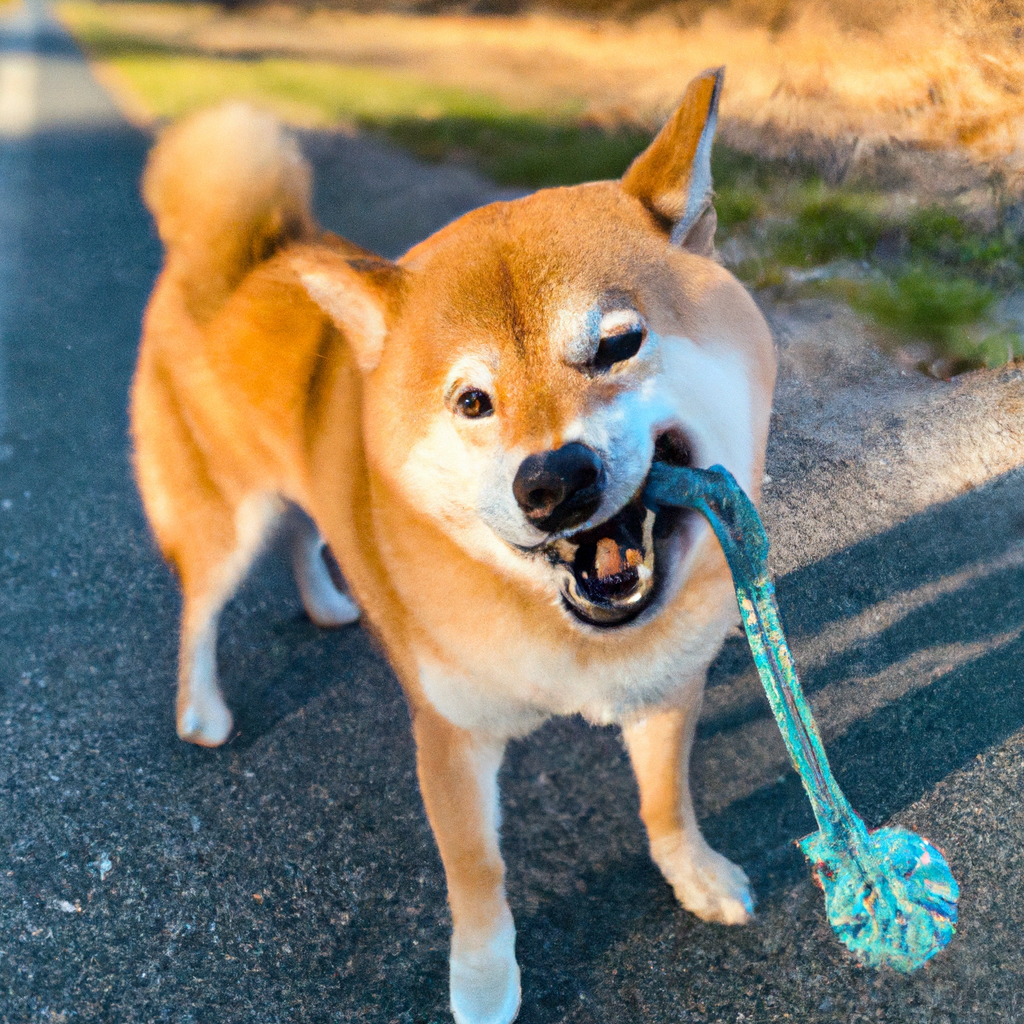
Hemet Shiba Inus, like all dog breeds, are prone to certain health challenges that owners should be aware of to ensure the well-being of their furry companions. Understanding these health issues is crucial for proactive care and timely intervention when necessary.
Overview of common health concerns in Hemet Shiba Inus
-
Patellar Luxation: This condition, where the kneecap dislocates from its normal position, is relatively common in Hemet Shiba Inus. It can cause varying degrees of lameness and discomfort, requiring veterinary attention.
-
Allergies: Hemet Shiba Inus are known to be susceptible to allergies, which can manifest as skin irritation, itching, and even gastrointestinal issues. Identifying and managing allergies promptly is essential for the dog’s quality of life.
-
Progressive Retinal Atrophy (PRA): PRA is an inherited condition that can lead to vision impairment or blindness over time. Regular eye check-ups can help detect PRA early on, enabling owners to plan for appropriate care.
Genetic predispositions and how they impact the breed
-
Hemet Shiba Inus have certain genetic predispositions that can influence their health outcomes. Responsible breeding practices aim to minimize these risks, but it’s essential for owners to be informed about potential genetic issues.
-
Hip Dysplasia: This genetic condition, where the hip joint doesn’t develop properly, can affect Hemet Shiba Inus. Monitoring their mobility and working with a veterinarian to manage hip dysplasia can improve the dog’s comfort and mobility.
-
Hypothyroidism: Hemet Shiba Inus may be prone to hypothyroidism, a condition where the thyroid gland doesn’t produce enough hormones. Symptoms include weight gain, lethargy, and skin problems, highlighting the importance of regular thyroid screenings.
By understanding the common health concerns and genetic predispositions of Hemet Shiba Inus, owners can take proactive steps to safeguard their pets’ well-being and provide them with a high quality of life. Regular veterinary check-ups, a balanced diet, and appropriate exercise can all contribute to managing these health challenges effectively.
Genetic Health Conditions in Hemet Shiba Inus
Shiba Inus, particularly those from Hemet, are predisposed to certain genetic health conditions that every dog owner should be aware of. Understanding these conditions can help in early detection and management to ensure the well-being of your furry companion. Here are some specific genetic health issues commonly found in Hemet Shiba Inus:
-
Patellar Luxation: Hemet Shiba Inus may be prone to patellar luxation, a condition where the kneecap dislocates from its normal position. This can cause lameness and discomfort in the affected leg.
-
Hip Dysplasia: Another prevalent genetic health concern in Hemet Shiba Inus is hip dysplasia, a condition where the hip joint doesn’t develop properly. This can lead to pain, limping, and eventually arthritis in the affected hip joint.
-
Allergies: Hemet Shiba Inus are known to have sensitivities to certain allergens, including food allergies and environmental allergens. Symptoms may manifest as itching, skin irritation, and gastrointestinal issues.
-
Progressive Retinal Atrophy (PRA): This genetic condition affects the eyes of Hemet Shiba Inus, leading to progressive vision loss and eventual blindness. Regular eye examinations are crucial in detecting PRA early on.
-
Hypothyroidism: Some Hemet Shiba Inus may develop hypothyroidism, a condition where the thyroid gland doesn’t produce enough hormones. Symptoms include weight gain, lethargy, and skin problems.
It is essential for breeders to prioritize responsible breeding practices to reduce the incidence of these genetic health conditions in Hemet Shiba Inus. Regular veterinary check-ups, genetic testing, and a nutritious diet can also aid in maintaining the overall health and well-being of these beloved dogs.
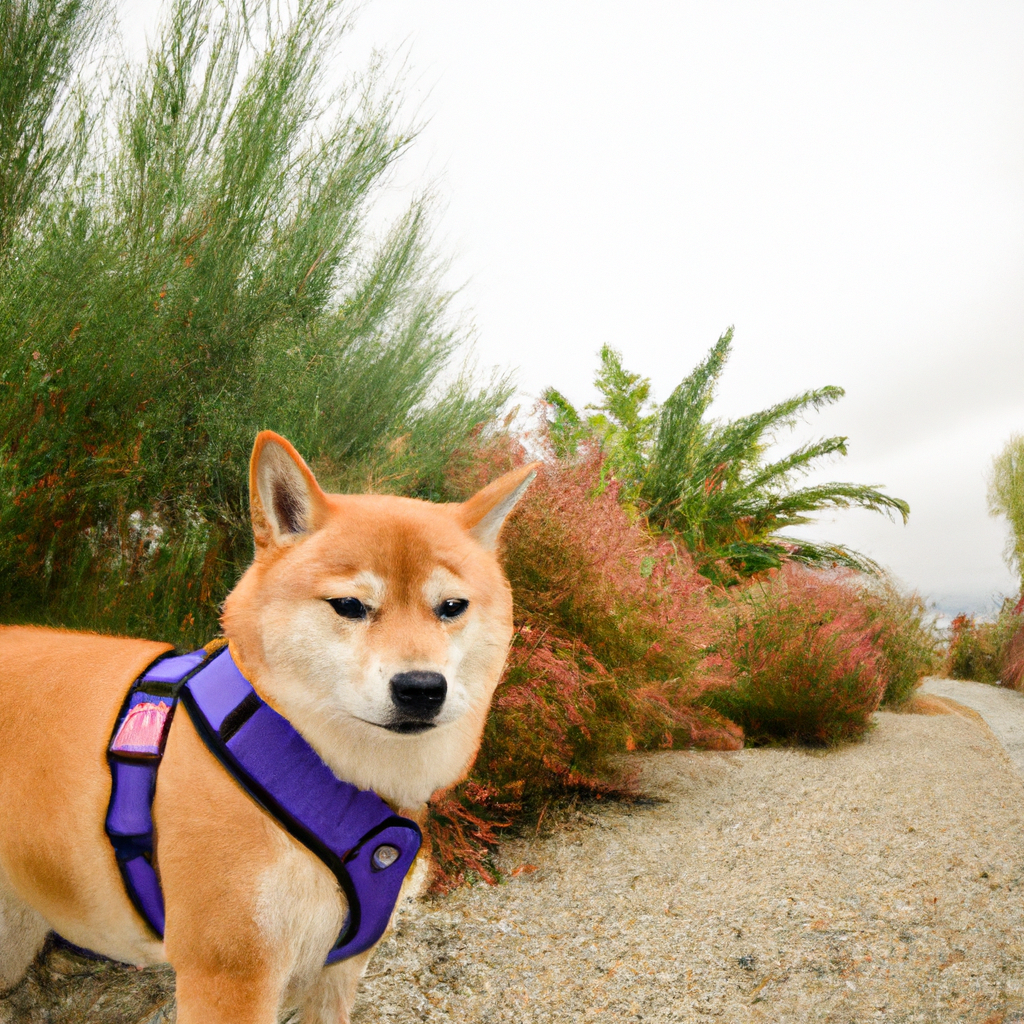
Recognizing Symptoms and Early Signs
When it comes to the health of Hemet Shiba Inus, recognizing symptoms and early signs of potential health issues is crucial for proactive care and timely intervention. These beloved dogs, known for their spirited nature and unique personalities, can also be prone to certain health challenges that every dedicated owner should be aware of. Here are some key points to keep in mind:
Behavioral cues that may signal underlying health problems
- Changes in Appetite: Pay close attention to any sudden changes in your Hemet Shiba Inu’s eating habits. A decrease in appetite or sudden disinterest in food could be a sign of underlying health issues.
- Unusual Lethargy: While Shiba Inus are typically energetic and lively, persistent lethargy or unexplained fatigue may indicate an underlying health concern that warrants further investigation.
- Behavioral Changes: Keep an eye out for any significant shifts in your dog’s behavior, such as increased aggression, anxiety, or irritability. These changes could be linked to underlying health issues that require prompt attention.
- Excessive Panting or Restlessness: If your Hemet Shiba Inu is panting excessively or displaying restlessness without a clear cause, it could be a sign of pain, discomfort, or an underlying health issue that needs to be addressed.
Physical indicators to watch out for in Hemet Shiba Inus
- Skin and Coat Changes: Check your dog’s skin and coat regularly for any abnormalities, such as excessive dryness, flakiness, redness, or hair loss. These could be signs of skin allergies, infections, or other dermatological issues.
- Difficulty Breathing: Labored breathing, wheezing, or coughing can be indicators of respiratory problems or underlying heart issues in Hemet Shiba Inus. Prompt veterinary attention is essential if you notice any breathing difficulties.
- Limping or Difficulty Moving: Any signs of limping, stiffness, or reluctance to move could signal musculoskeletal issues, joint pain, or orthopedic problems that need to be addressed by a veterinarian.
- Changes in Weight: Sudden weight loss or gain in Hemet Shiba Inus should not be ignored, as they can be indicative of various health conditions, including metabolic disorders, thyroid issues, or gastrointestinal problems.
By staying vigilant and proactive in observing both behavioral cues and physical indicators in your Hemet Shiba Inu, you can help ensure early detection and appropriate management of any potential health challenges that may arise. Regular veterinary check-ups and open communication with your veterinarian are key in maintaining the health and well-being of your beloved canine companion.
Regular Health Monitoring
When it comes to the health of Hemet Shiba Inus, regular monitoring is crucial. This involves more than just occasional check-ups; it requires a proactive approach from the dog owner. Here are key points to consider when establishing a health monitoring routine for your Shiba Inu:
-
Observational Monitoring: Pay close attention to your dog’s behavior, appetite, energy levels, and any changes in their routine. Any deviations from the norm could be early indicators of underlying health issues.
-
Physical Examination: Conduct regular physical examinations of your Hemet Shiba Inu, checking for any lumps, bumps, or abnormalities on their skin, as well as monitoring their weight and body condition score.
-
Dental Health: Keep a close eye on your Shiba Inu’s dental health, as dental problems can lead to more serious health issues if left untreated. Regularly inspect their teeth and gums for signs of tartar buildup, gingivitis, or other dental issues.
-
Nutritional Monitoring: Ensure your dog is receiving a balanced diet appropriate for their age, size, and activity level. Monitor their food intake, weight, and overall body condition to prevent obesity or malnutrition.
-
Parasite Control: Implement a regular parasite control program for your Hemet Shiba Inu, including flea, tick, and heartworm prevention. Regularly check your dog for any signs of parasites and consult with your veterinarian for the most effective prevention methods.
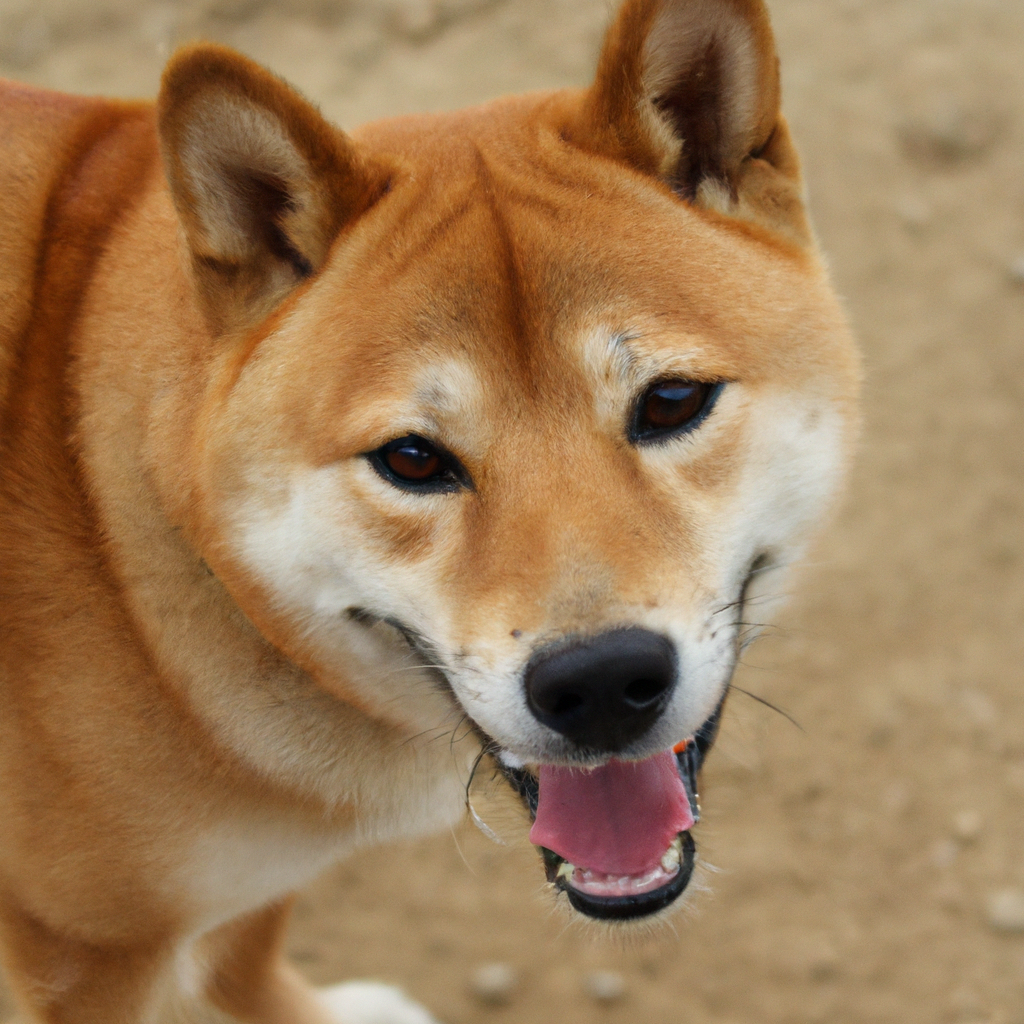
By establishing a comprehensive health monitoring routine for your Hemet Shiba Inu, you can detect potential health issues early on and provide timely intervention to ensure your dog leads a healthy and happy life.
Dietary Considerations for Hemet Shiba Inus
When it comes to the dietary needs of Hemet Shiba Inus, tailoring a nutrition plan is crucial to support their overall health and well-being. These dogs are known to have a sensitive stomach, so it’s essential to choose high-quality, easily digestible food that meets their specific nutritional requirements. Look for dog food that is specifically formulated for small to medium-sized breeds like the Shiba Inu.
Foods to avoid that may exacerbate existing health issues in Hemet Shiba Inus include those high in fat content, as this breed is prone to obesity. Additionally, ingredients like soy, wheat, and corn can trigger allergies in some Shiba Inus, leading to skin issues and digestive problems. Opt for food that is free from artificial additives, colors, and preservatives to minimize the risk of adverse reactions. Consulting with a veterinarian to create a customized diet plan for your Hemet Shiba Inu can help address any specific health concerns and ensure they receive the necessary nutrients for optimal well-being.
Importance of Adequate Exercise
Hemet Shiba Inus, like many other dog breeds, require a consistent and suitable exercise regimen to maintain their overall health and well-being. Exercise plays a crucial role in keeping these dogs physically and mentally stimulated, preventing obesity, and promoting longevity. Here are some key points to consider when it comes to the importance of adequate exercise for Hemet Shiba Inus:
-
Preventing Obesity: Regular exercise helps in managing weight and preventing obesity, which is essential for the overall health of Hemet Shiba Inus. Obesity can lead to various health issues such as joint problems, heart disease, and diabetes.
-
Mental Stimulation: Hemet Shiba Inus are intelligent and active dogs that require mental stimulation along with physical activity. Regular exercise helps in keeping them mentally sharp, preventing boredom, and reducing behavioral issues.
-
Bonding Opportunity: Engaging in physical activities with your Hemet Shiba Inu, such as walking, running, or playing fetch, provides an excellent bonding opportunity between the dog and the owner. It strengthens the bond and trust between the pet and the owner.
-
Promoting Longevity: Adequate exercise has been linked to promoting longevity in dogs. Keeping Hemet Shiba Inus active and fit can help in improving their quality of life and extending their lifespan.
-
Consultation with a Veterinarian: Before designing an exercise regimen for your Hemet Shiba Inu, it is crucial to consult with a veterinarian. A professional can provide guidance on the appropriate level of exercise based on the dog’s age, health condition, and individual requirements.
Mental Health and Well-Being
Hemet Shiba Inus, like many other dog breeds, require attention to their mental health and well-being to ensure a happy and fulfilling life. Addressing the emotional needs of these intelligent and independent dogs is crucial for their overall happiness and behavior.
Strategies to promote mental stimulation and prevent behavioral issues
1. Daily Exercise:
Regular physical activity is essential for the mental well-being of Hemet Shiba Inus. Engaging in activities like walks, runs, or interactive play sessions can help stimulate their minds and prevent boredom.
2. Enrichment Toys:
Providing Hemet Shiba Inus with interactive toys that challenge their problem-solving skills can keep them mentally engaged and prevent destructive behaviors that may arise from boredom.
3. Training and Socialization:
Consistent training sessions not only help in teaching commands but also provide mental stimulation for these intelligent dogs. Additionally, proper socialization with other dogs and people can prevent behavioral issues stemming from fear or anxiety.
4. Mental Exercises:
Incorporating mental exercises like puzzle games, scent work, or obedience training can keep Hemet Shiba Inus mentally sharp and satisfied. These activities tap into their natural instincts and provide a sense of accomplishment.
5. Routine and Structure:
Establishing a routine and providing a structured environment can help Hemet Shiba Inus feel secure and reduce anxiety. Predictability in their daily activities can contribute to their mental well-being.
By prioritizing mental health and well-being through these strategies, Hemet Shiba Inu owners can ensure a happy and harmonious relationship with their beloved pets.
Creating a Safe Environment
Mental Health and Well-Being
Ensuring a secure and stimulating living space for Hemet Shiba Inus is essential in promoting their mental well-being. Here are some key considerations for creating a safe environment for these dogs:
-
Secure Fencing: Hemet Shiba Inus are known for their curious and independent nature, so it is crucial to have secure fencing around your property to prevent them from wandering off. Ensure that the fencing is tall enough to prevent them from jumping over and sturdy enough to withstand their energetic nature.
-
Safe Indoor Spaces: Inside the house, designate safe and cozy spaces where your Hemet Shiba Inu can retreat to when they need some alone time. Provide comfortable bedding, toys, and a sense of security in these areas to help them feel safe and relaxed.
-
Regular Exercise: Hemet Shiba Inus are active dogs that require regular exercise to stay healthy and mentally stimulated. Create a routine that includes daily walks, playtime, and interactive games to keep them physically and mentally engaged.
-
Routine and Consistency: Dogs thrive on routine and consistency, so establish a daily schedule that includes feeding times, exercise, playtime, and rest. This predictability can help reduce stress and anxiety in Hemet Shiba Inus, promoting their overall mental well-being.
By prioritizing the creation of a safe and stimulating environment for your Hemet Shiba Inu, you can help support their mental health and ensure that they lead happy and fulfilling lives.
Holistic Approaches to Hemet Shiba Inus’ Health
Hemet Shiba Inus, like all breeds, can benefit from holistic approaches to maintain their health and well-being. These alternative therapies and supplements offer a complementary way to support their overall health alongside conventional veterinary care.
Exploring Alternative Therapies and Supplements for Holistic Well-being
-
Acupuncture: Acupuncture is a traditional Chinese medicine practice that involves the insertion of thin needles into specific points on the body to promote healing and relieve pain. This therapy can be beneficial for Shiba Inus dealing with musculoskeletal issues or chronic pain.
-
Herbal Remedies: Herbal supplements such as chamomile, ginger, or turmeric can offer natural relief for common ailments like digestive issues or inflammation. It’s essential to consult with a holistic veterinarian before introducing any new herbs to your Shiba Inu’s diet.
-
Massage Therapy: Massage can help improve circulation, reduce stress, and enhance the bond between you and your furry companion. Gentle massages can be particularly soothing for Shiba Inus prone to anxiety or muscle tension.
Integrating Holistic Practices with Conventional Veterinary Care
-
Collaboration with Veterinarians: It’s crucial to communicate openly with your conventional veterinarian when incorporating holistic practices into your Shiba Inu’s healthcare routine. By working together, you can ensure that all aspects of your dog’s health are being addressed effectively.
-
Nutritional Support: Holistic approaches often emphasize the importance of a balanced diet tailored to your dog’s specific needs. Integrating high-quality, natural foods and supplements can support your Shiba Inu’s immune system and overall vitality.
-
Mind-Body Connection: Holistic care recognizes the interconnectedness of physical health and emotional well-being in dogs. Practices like meditation, aromatherapy, or behavior modification techniques can help promote mental wellness in Hemet Shiba Inus.
In conclusion, by embracing holistic approaches alongside conventional veterinary care, Hemet Shiba Inu owners can provide comprehensive support for their beloved pets’ health and happiness.
FAQs: Hemet Shiba Inus Health Issues
What are some common health issues that Hemet Shiba Inus are prone to?
Hemet Shiba Inus are known to be prone to certain health issues such as hip dysplasia, patellar luxation, allergies, and progressive retinal atrophy. It is important for dog owners to be aware of these issues and monitor their Shiba Inu for any symptoms.
How can I ensure my Hemet Shiba Inu stays healthy and avoids these health issues?
To ensure your Hemet Shiba Inu stays healthy and avoids common health issues, it is important to provide a balanced diet, regular exercise, veterinary check-ups, and proper grooming. Keeping up with vaccinations and preventative care can also help maintain your dog’s overall health.
What should I do if I notice any health concerns or symptoms in my Hemet Shiba Inu?
If you notice any health concerns or symptoms in your Hemet Shiba Inu, it is important to seek veterinary advice immediately. Early detection and treatment of health issues can greatly improve outcomes for your dog.
Are there any specific dietary requirements or supplements that Hemet Shiba Inus should have?
Hemet Shiba Inus do not have any specific dietary requirements, but it is important to provide a high-quality, balanced diet to support their overall health. Your veterinarian may recommend specific supplements based on your dog’s individual needs.
Are there any preventive measures I can take to help protect my Hemet Shiba Inu’s health?
Some preventive measures you can take to help protect your Hemet Shiba Inu’s health include keeping up with vaccinations, regular exercise, proper grooming, and monitoring for any changes in behavior or symptoms of illness. Additionally, maintaining a clean and safe environment for your dog can help prevent the spread of diseases and parasites.
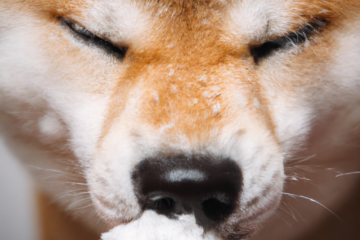

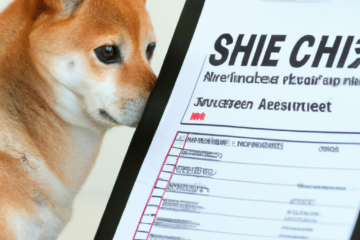
0 Comments